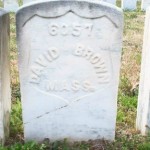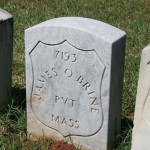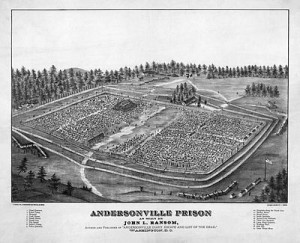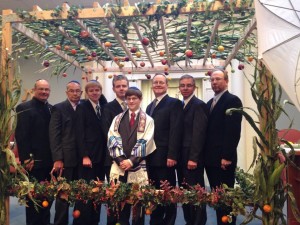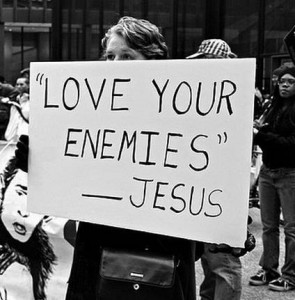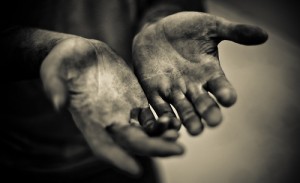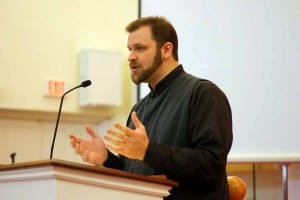
The Gospel of Luke 8:5-15
The Lord said this parable: “A sower went out to sow his seed; and as he sowed, some fell along the path, and was trodden under foot, and the birds of the air devoured it. And some fell on the rock; and as it grew up, it withered away, because it had no moisture. And some fell among thorns; and the thorns grew with it and choked it. And some fell into good soil and grew, and yielded a hundredfold.” And when his disciples asked him what this parable meant, he said, “To you it has been given to know the secrets of the kingdom of God; but for others they are in parables, so that seeing they may not see, and hearing they may not understand. Now the parable is this: The seed is the word of God. The ones along the path are those who have heard; then the devil comes and takes away the word from their hearts, that they may not believe and be saved. And the ones on the rock are those who, when they hear the word, receive it with joy; but these have no root, they believe for a while and in time of temptation fall away. And as for what fell among the thorns, they are those who hear, but as they go on their way they are choked by the cares and riches and pleasures of life, and their fruit does not mature. And as for that in the good soil, they are those who, hearing the word, hold it fast in an honest and good heart, and bring forth fruit with patience.” As he said these things, he cried out “He who has ears to hear, let him hear.”

On the 21st Sunday after the Great Feast of Pentecost we read the parable of the sower, or as I like to call it the parable of the soil. You see the focus of this story is not on the seed but on the soil that the seed will be sown into, into other words, us.
Seeds are powerful things. A seed placed in the wrong place can push through with amazing power, like pushing through asphalt. But if the seed is going to grow to its fullest potential then it needs well prepared soil and the same is true with each of us.
The seed in the story is the word of God, the truth. Not some version of the truth but the truth, tested by time and revealed to us through the Church. Not our version of the truth, not popular watered down I’m okay you’re okay version of the truth but the actual hard truth that we are all sinners and we need God’s help to get us through. But what of seeds of our hearts? The seeds of love, the seeds of hate, the seeds of compassion, the seeds of greed, and the seeds of envy? Do we let all of these seeds take root?
I heard someone say, “If only I had an opportunity to heard God speak in person.” It is sad that so many to not realize that God is speaking in person, through His Word and through His Church. Each week the Church proclaims the Word of God, not my word, but God’s Word. But God will also speak to us through Scripture reading in our own home. My prayer is that each of you are practicing daily Scripture reading.
The sad fact is that, just like in the story, three out of four times the word, the seed, falls on death ears. Three out of four will reject the word for various reasons. Some will reject it because they believe that the church has nothing for them. My question is what do you have for the Church after all you get out what you put in. If you are not invested in your spirituality then you will get nothing. Some will miss the point of the sermon all together or they will hear it and be offended by it. GOOD! I hope you are offended that means I am doing my job. It is not my job to make you feel good about yourself, I will leave the too Oprah and all of the others spinning their nonsense. My job, the job of the Church, is to move you to action on behalf of yourself but also on behalf of all. And some will day dream their way through the service counting the minutes until they can get out and fulfill their obligation.
Part of the problem is we have let our hearts become hard. This happens for many reasons, but it prevents us from receiving the bread of life and thus we kill our souls. Nothing will stop the Word of God more than a hardened heart. It stops the word completely and it will not penetrate it no matter what happens. There is no softness at all and the word will just bounce off. We look at the speck in someone else’s eye all the time ignoring the plank in our own.
How does this happen? It happens by pride when we think we know better. As I said before, we think we know better than the Church. The Church is not designed to be popular in fact it is designed to be just the opposite. Why was Jesus killed? Because he was not popular. He was preaching the Gospel, notice I did not say “a” Gospel, He was preaching The Gospel and that upset the powers that be. He was not preaching anything new He was just telling it like it is. We are all children of God but we are all sinners.
A lack of cultivation will also harden the soil of our hearts. Plating a garden take an enormous amount of work and if done right the yield will be amazing. The same is true of our spiritual life. We have to work it, constantly, feeding the soil of our hearts and of our souls in order for the yield to be what it is meant to be. The problem with the Church today is not the seed it is the soil!
We can hear the truth but not accept it and this leads to poor yield. We do not accept that we have to change and so we continue on with our hatreds, our prejudices, our pride, our envy, and our wars. Again, the soil needs to be worked daily to prevent this from happening.
The saddest part of the parable is the seed that fell and the weeds came to choked it off. Soil that produces weeds has great potential to produce anything but the cares of the world distract us. Sure we hear the word, and we even believe it but then the cares of the world come along and derail us and we go off on our own. We need to resist this temptation with all our being. What thorns and what weeds to we allow to grow in our lives that choke off the central loyalty to God and His Word?
Of course we all want to believe that we are the good soil, and sometimes we are, but this is the soil we want to be. The soil where the Word can take up residence and become part of us and grows from us and spreads from us. We want the Word to take possession of us, of our desires, our emotions, our thoughts, and our actions. If we let it surely it will and we, and the world will be all the better for it. But it takes time, it takes work, and it takes patience. Our world tells that we need everything yesterday but our spiritual life is not that fast.
We need to become sensitive to God’s voice in our lives and life the message of the Gospel each and every day. This becomes possible by tuning our ears to hear Him when He speaks, and speak He will and does.
“ He who has ears to hear let him hear.” Let us roll up our sleeves, pick up that garden tool, plow the soil, pull up the weeds and become the best soil we can for Christ.
